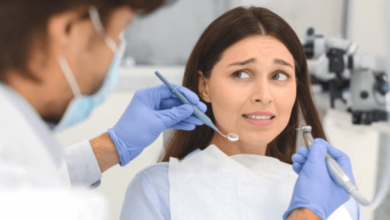Polygraph Tests in North Carolina: What You Need to Know

Understanding Polygraph Tests
A polygraph test, widely known as a lie detector test, is designed to measure physiological signals such as heart rate, breathing rate, blood pressure, and skin conductivity. The idea is that when a person tells the truth, their body remains relatively stable, while lying often triggers small but measurable stress responses. These measurements are then interpreted by a trained examiner to determine whether someone may be telling the truth or being deceptive. Although the polygraph is not perfect, it has been a widely discussed and often debated tool in the field of investigations, law enforcement, and even personal disputes.
The Role of Polygraph Tests in North Carolina
In North Carolina, polygraph tests have become part of legal, employment, and even relationship-related issues. Some people seek them out to resolve personal doubts, while others encounter them in professional or criminal justice settings. For instance, law enforcement may use a polygraph as part of an investigation to either narrow down suspects or to verify information provided by a witness or suspect. Employers, on the other hand, may not have free rein to use lie detector tests because of federal and state laws, but there are limited exceptions. Polygraph tests in North Carolina therefore occupy a middle ground: they are not completely banned, but they are also not fully embraced as infallible truth-telling machines.
How Polygraph Testing Works
A polygraph test usually begins with a pre-test interview, during which the examiner explains the process and ensures the subject understands the questions. The examiner will attach sensors to measure blood pressure, respiration, and perspiration levels. Questions are then asked, starting with neutral baseline questions to establish a person’s normal response, followed by relevant questions related to the investigation or issue. The examiner later analyzes the recorded data to determine whether the physiological responses suggest honesty or deception. In North Carolina, polygraph examiners are often trained professionals with certifications that allow them to administer tests in both private and legal settings.
Accuracy and Limitations of Polygraph Tests
One of the most debated aspects of polygraph testing is accuracy. Supporters argue that polygraphs are effective at detecting lies because they measure involuntary bodily responses. Critics, however, point out that results can be influenced by anxiety, nervousness, or even medical conditions, which do not necessarily equal dishonesty. In North Carolina, courts generally do not accept polygraph results as definitive evidence, precisely because of these limitations. However, the test can still serve as a valuable investigative tool, helping guide investigators toward areas needing further scrutiny.
See also: Innovating Wellness: How Jiabei Health is Transforming Gummy Vitamin Manufacturing
Who Uses Polygraph Tests in North Carolina?
Polygraph services are sought by a wide range of individuals and organizations. Law enforcement agencies may use them during criminal investigations. Attorneys sometimes recommend a polygraph test to strengthen a client’s credibility. Businesses involved in security or sensitive information handling might use them for pre-employment screenings, if legally permitted. On a personal level, some people turn to polygraph examiners to resolve family disputes or issues of trust, such as concerns about infidelity. This broad application shows that polygraph tests are not confined to the criminal justice system alone.
Public Perception of Lie Detector Tests
Public opinion about polygraph tests in North Carolina reflects the broader national debate. Many people see the polygraph as a symbol of truth detection, imagining it as a machine that cannot be fooled. Movies and television shows often reinforce this image. However, those who study the technology and legal experts understand that polygraphs are not foolproof. As a result, while people may value them for guidance or reassurance, they are usually advised not to view the results as absolute truth. This mix of belief and skepticism shapes how polygraphs are requested and interpreted in everyday life.
Ethical Considerations in Polygraph Testing
The use of polygraphs in North Carolina also raises ethical questions. Is it fair to ask someone to take a test that may label them as deceptive when nervousness alone could trigger misleading results? Should employers or partners rely on a polygraph test to make life-changing decisions? Many examiners stress that the polygraph should be used as one piece of information among many, not as the sole basis for judgment. Ethical examiners explain the limitations clearly to clients and avoid overselling the accuracy of their services. These considerations are especially important in sensitive personal or legal matters.
The Future of Polygraph Testing in North Carolina
As technology advances, the field of lie detection is also evolving. Researchers are exploring new methods, such as brain scans and artificial intelligence, to detect deception with greater reliability. In North Carolina, the future of polygraph testing may involve blending traditional methods with these emerging technologies. At the same time, laws and public attitudes will likely continue to shape how polygraphs are used. The ongoing tension between the demand for truth and the limitations of current science ensures that the role of polygraph tests will remain a subject of debate and interest in the state.
Location North Carolina
- Charlotte – 2015 Ayrsley Town Blvd, Charlotte, NC 28273
- Mooresville – 106 Langtree Village Drive, Mooresville, NC 28117
- Greensboro – 717 Green Valley Road, Greensboro, NC 27408
- Durham – 2530 Meridian Pkwy, Durham, NC 27713
- Raleigh – 4242 Six Forks Rd, Raleigh, NC 27609
Conclusion
Polygraph tests in North Carolina occupy a unique space between science, law, and human emotion. They offer valuable insights but are not definitive proof of truth or lies. Whether used in criminal investigations, employment settings, or personal disputes, polygraph tests must be understood in their full context: as tools that measure stress responses, not as machines that reveal absolute truth. For anyone in North Carolina considering a lie detector test, the key is to approach it with awareness of both its potential benefits and its limitations. By understanding how polygraphs work, their legal status, and their role in society, individuals can make informed decisions about whether and how to use them.





